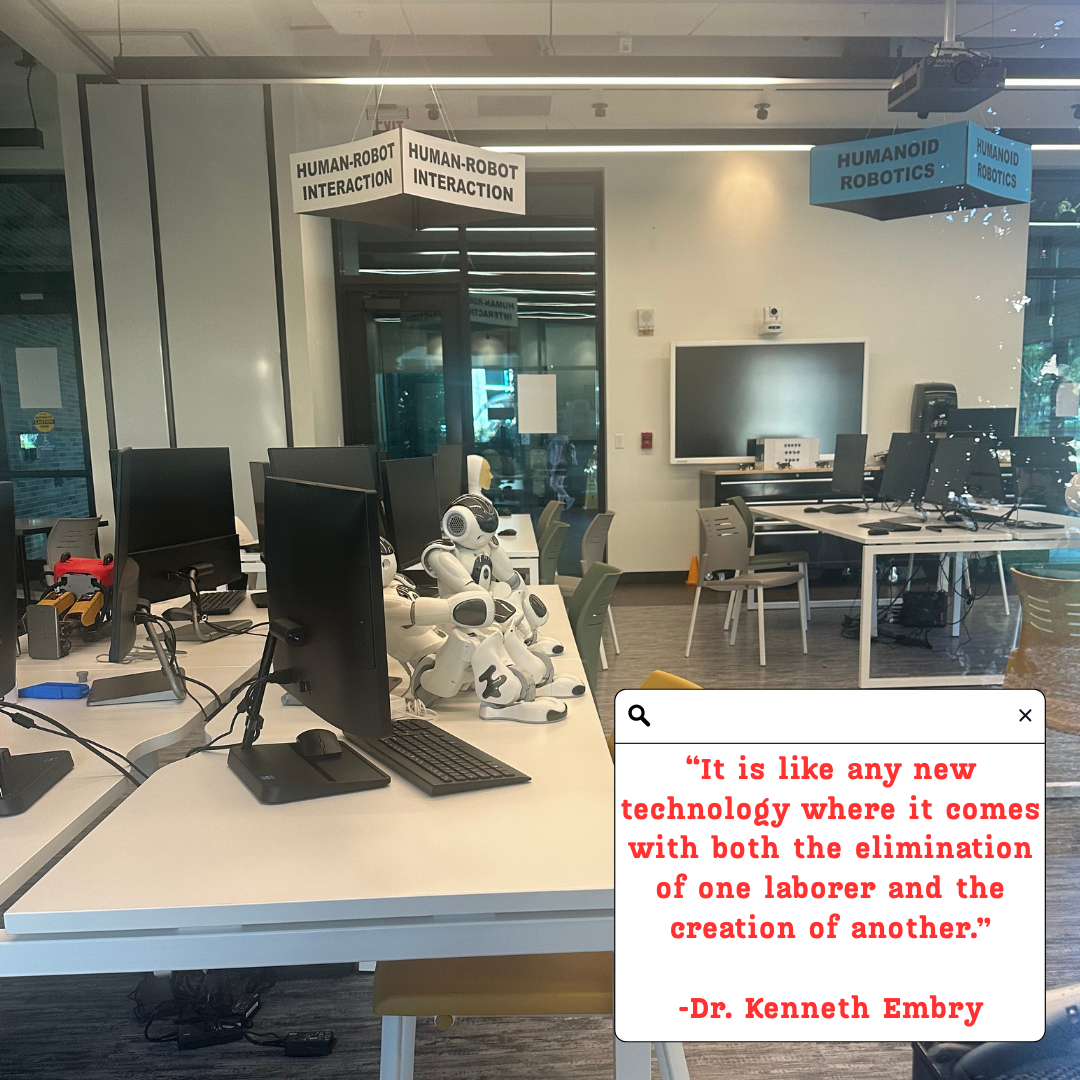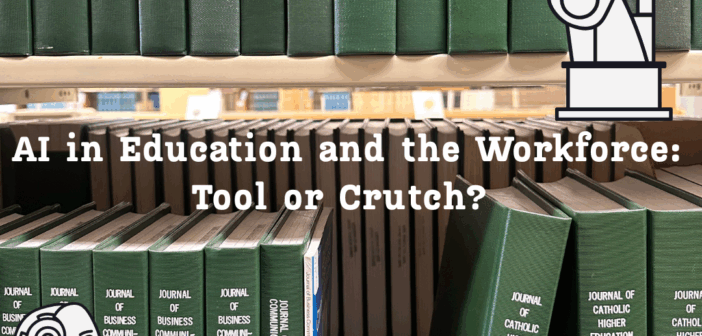By Sarah McMinn, Staff Writer
Artificial intelligence (AI) has rapidly evolved from a futuristic concept to a powerful tool integrated into daily life. From assisting with assignments to streamlining workplace operations, its reach is undeniable. This transformation raises the question: Is society—especially students and professionals—becoming too reliant on AI?
Dr. Kenneth Embry, communications professor, likens our growing dependence on AI to our reliance on electricity or running water.
“We are completely dependent on these things, but they are really reliable,” said Embry.
Makayla Bech, a senior English major, offers a more cautionary perspective. College students increasingly rely on tools like ChatGPT for writing assignments, organizing their thoughts, and correcting grammar.
“In a sense, yes, I do believe college students are too dependent on AI,” said Bech.
Embry predicts a shift, similar to past technological revolutions.
“It is like any new technology where it comes with both the elimination of one laborer and the creation of another,” said Embry.
Bech emphasizes AI’s influence in STEM fields, where it’s used for research, data analysis, and automating complex tasks. However, she fears this convenience could come at the cost of deeper learning and cognitive development.
“AI cannot define what values you have, or your ethics,’ said Bech.
Ethical concerns are especially prominent, particularly in academic settings.
Bech is especially troubled by how students use AI to bypass learning foundational skills.
From formatting papers to generating complete assignments, she worries that these shortcuts undermine genuine education.
“People are struggling with actually knowing and understanding why papers need to be written a certain way,” said Bech.



In classrooms and research settings, AI’s influence is already palpable. Embry explains how tools like NotebookLM have made analyzing focus group data faster and more efficient.
“It saves a lot of time, but it also means we need to get better at asking follow-up questions,” said Embry.
While AI can summarize and identify patterns, interpreting what matters still requires human judgment, rooted in value systems and experience.
Beyond education, the growing environmental implications of AI must be considered, highlighting a lesser-discussed consequence of technology’s rapid adoption.
Looking ahead, Bech remains concerned about AI’s long-term effects on career readiness. She fears that if students continue outsourcing their thinking to AI, they’ll enter the workforce underprepared.
“They are not logically thinking and depending on AI sources to compile information for them. It takes away the purpose of learning,” said Bech.
Embry, though more hopeful, agrees that judgment, empathy, and prioritization—the very qualities that make us human—will remain essential in navigating a future increasingly shaped by AI.
So, where does that leave students and professionals today? The answer appears to lie in balance. AI is a powerful tool, but like any tool, its impact depends on how we use it.
Relying on it blindly may erode essential thinking skills, but rejecting it entirely risks falling behind in a world that’s evolving.
As the AI landscape expands, the challenge for students, educators, and workers will be to engage with these tools thoughtfully—using them to enhance, not replace, our human capabilities.





